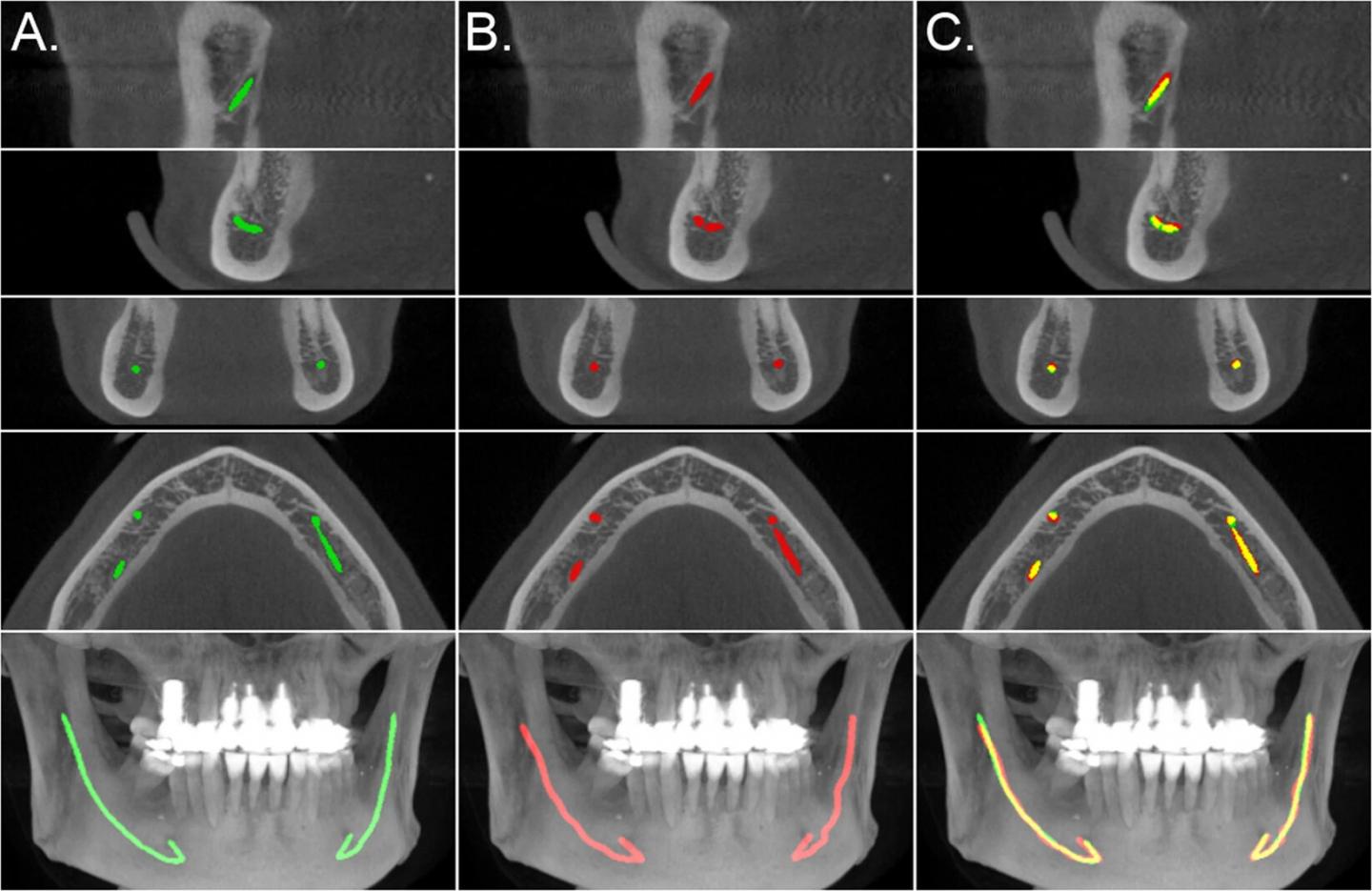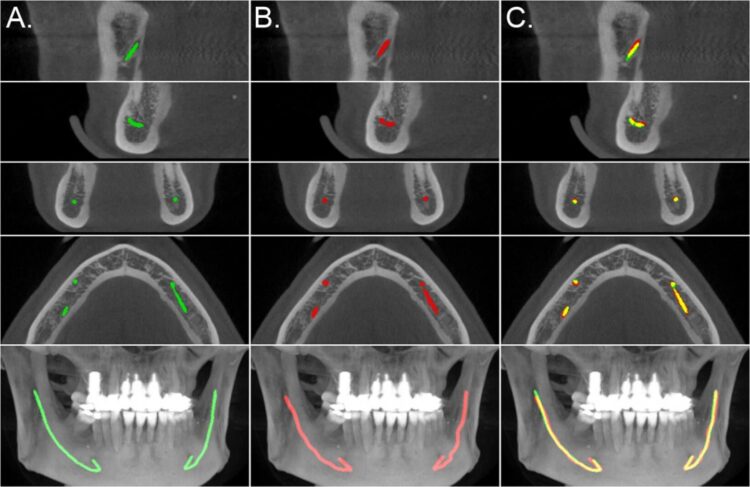New model helps localise the mandibular canals

Credit: The authors
In order to plan a dental implant operation and the implant size and position, dentists need to know the exact location of the mandibular canal, a canal located in both sides of the lower jaw that contains the alveolar nerve.
The lower jaw is an anatomically complex structure and medical experts use X-ray and computer tomography (CT) models to detect and diagnose such structures. Typically, dentists and radiologists define the location of the mandibular canals manually from the X-ray or CT scans, which makes the task laborious and time-consuming. That is why an automatized way to do this could make their work and placement of dental implants much easier.
To bring a solution to this problem, researchers at the Finnish Center for Artificial Intelligence FCAI, Tampere University Hospital, Planmeca and the Alan Turing Institute developed a new model that accurately and automatically shows the exact location of mandibular canals. The model is based on training and using deep neural networks. The researchers trained the model by using a dataset consisting of 3D cone beam CT (CBCT) scans.
The model is based on a fully convolutional architecture, which makes it as fast and data-efficient as possible. Based on the research results, this type of a deep learning model can localise the mandibular canals highly accurately. It surpasses the statistical shape models, which have thus far been the best, automatized method to localise the mandibular canals.
In simple cases – when the patient does not have any special conditions, such as osteoporosis – the model is as accurate as a human specialist. Most patients that visit a dentist fall into this category. ‘In more complex cases, one may need to adjust the estimate, so we are not yet talking about a fully stand-alone system,’ says Joel Jaskari, Doctoral Candidate and the first author of the research paper.
Using Artificial Intelligence has another clear advantage, namely the fact that the machine performs the job equally fast and accurately every time. ‘The aim of this research work is not, however, to replace radiologists but to make their job faster and more efficient so that they will have time to focus on the most complex cases,’ adds Professor Kimmo Kaski.
Planmeca, a Finnish company developing, manufacturing and marketing dental equipment, 2D and 3D imaging equipment and software, collaborates with FCAI. The company is currently integrating the presented model into its dedicated software, to be used with Planmeca 3D tomography equipment.
The research results were recently published in the prestigious publication series Scientific Reports. Link to the research article: https:/
###
Media Contact
Joel Jaskari
[email protected]
Original Source
https:/
Related Journal Article
http://dx.





